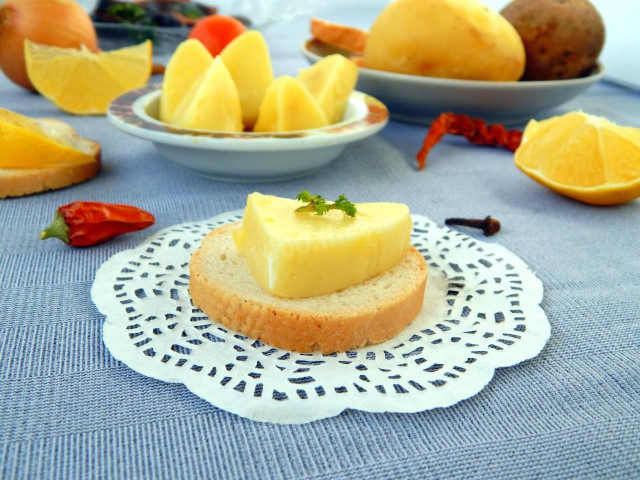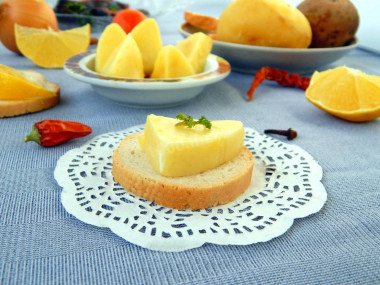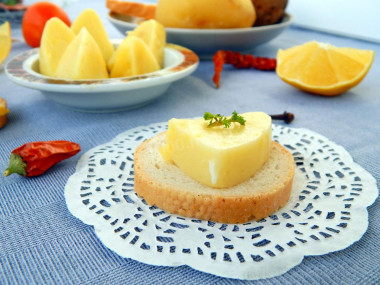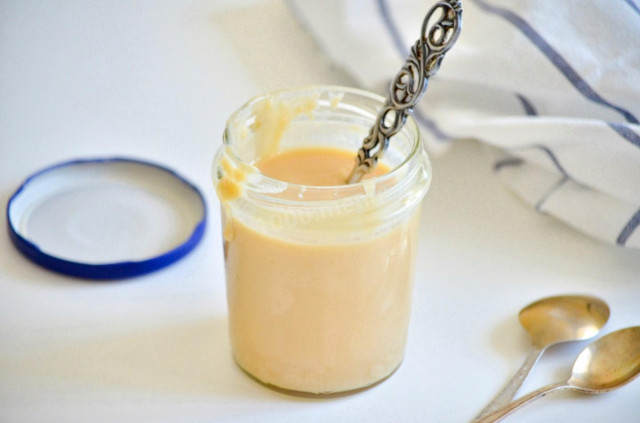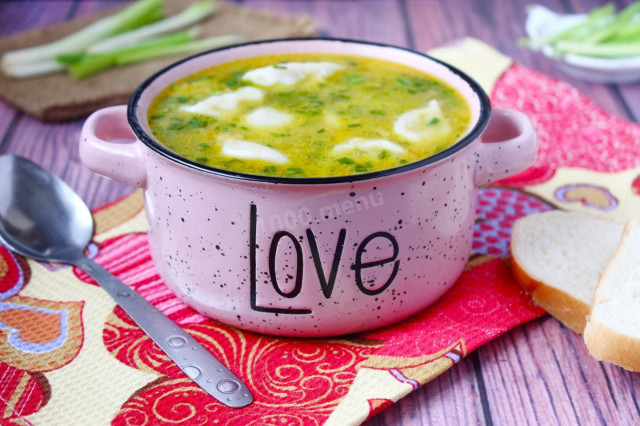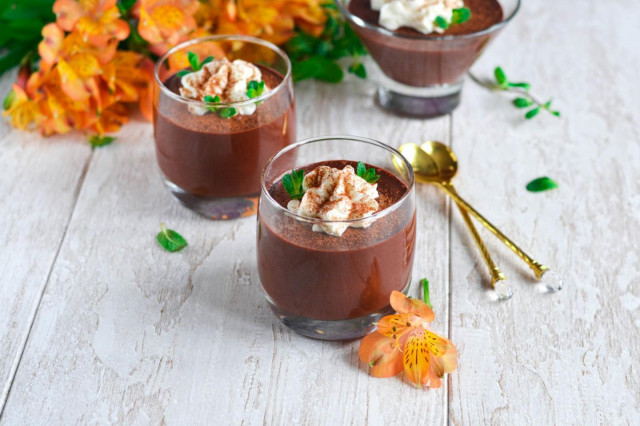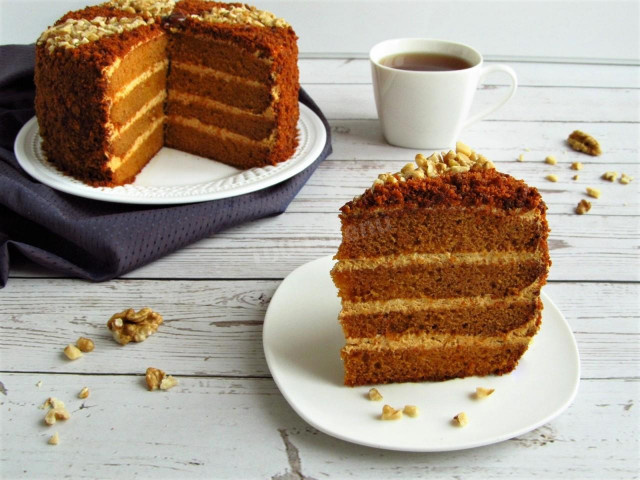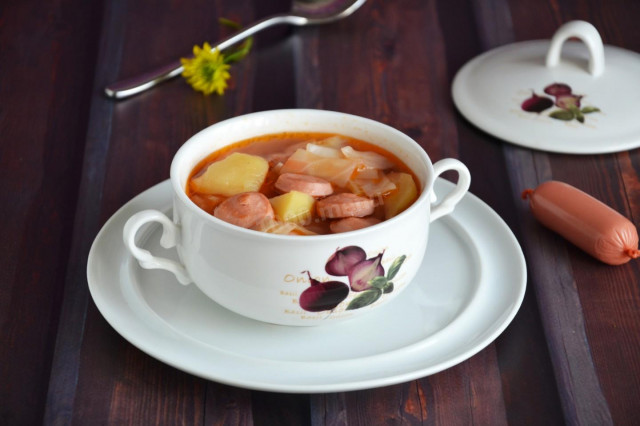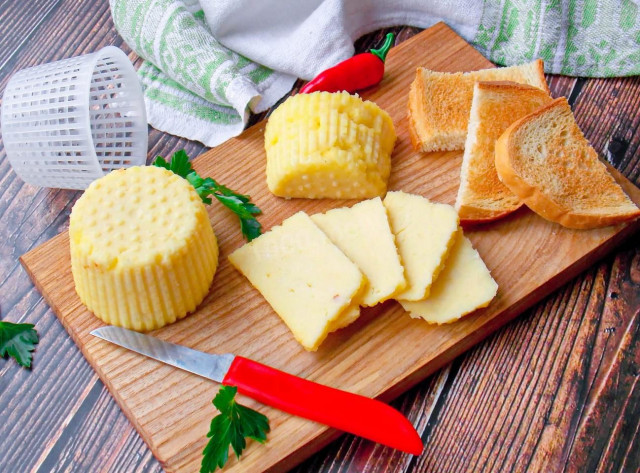Composition / ingredients
Step-by-step cooking
Step 1:
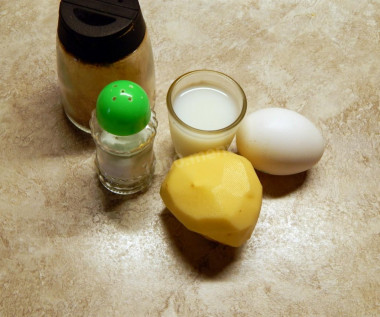
How to make potato cheese? Prepare the ingredients. Milk for potato cheese must necessarily be sour. It is easy to make it at home, leave a container of milk in a warm place (at room temperature) for a couple of days. The main thing is that you need to take whole, fatty milk. In addition to milk, you can use natural fatty and thick sour cream to make cheese, but in principle potato cheese is obtained without it.
Step 2:

It is better to take potatoes of a variety that contains more starch and is better boiled. Wash and peel the potatoes. Cut into cubes.
Step 3:
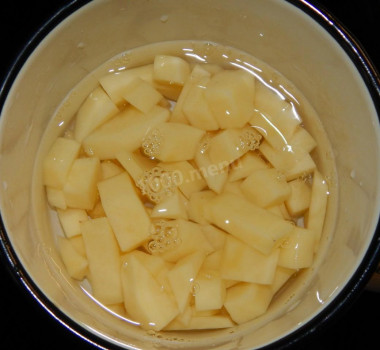
Put the potatoes in a saucepan, fill with water, put on fire. Add a little salt.
Step 4:
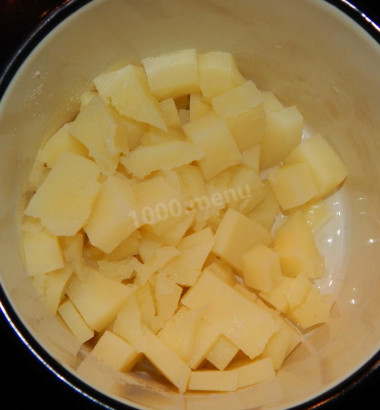
Cook until tender. Completely drain the water in which the potatoes were cooked.
Step 5:
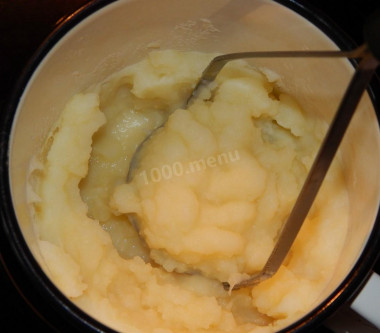
Mash the potatoes so that there are no lumps left. Let the mashed potatoes cool down a little. Pour in the sour milk and mix well. Beat in a chicken egg. It is not necessary to add chicken eggs to the potato mass, especially if there is no confidence in their quality, since after their addition the product will not be subjected to heat treatment. But the yolk of a chicken egg makes the cheese a more beautiful yellow color, and the protein makes the mass more sticky and dense.
Step 6:
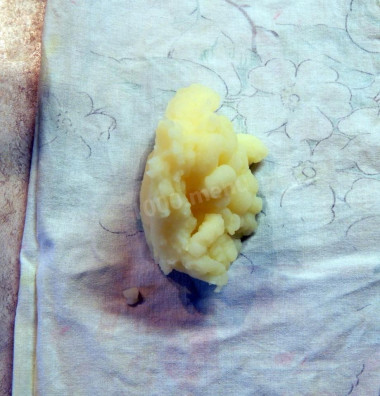
Mix the potato mass well again. Add salt to taste and for those who like poppier and sharper cheeses, you can add a pinch of hot pepper. Take a clean cloth of such quality that the villi do not separate from it and do not get into the cheese product. Put mashed potatoes on it. Gather the edges of the fabric to make a pouch. Place it in a colander or sieve, press down on top with a yoke.
Step 7:

As a yoke, you can use a pot filled with water. Place the sieve in a bowl so that the liquid flows into it. Leave the cheese under the yoke until all the liquid completely drains (it may take from several hours to two days).
Step 8:
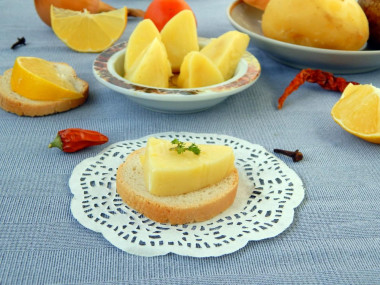
Remove the cheese from the cloth, let it dry a little at room temperature and you can serve it to the table. Enjoy your meal!
Since the degree of salinity, sweetness, bitterness, sharpness, acid, burning is individual for everyone, always add spices, spices and seasonings, focusing on your taste! If you put some of the seasonings for the first time, then keep in mind that there are spices that it is especially important not to shift (for example, chili pepper).
How do I know if an egg is fresh? Break it into a separate container. First of all, there should be no unpleasant smell. The protein of fresh eggs will be transparent and clean. The yolk should not spread and will be shiny, convex, homogeneous.
Be sure to wash the eggs before use, as even the seemingly clean shell may contain harmful bacteria. It is best to use food detergents and a brush.
Caloric content of the products possible in the composition of the dish
- Ripe potatoes - 80 kcal/100g
- Baked potatoes - 70 kcal/100g
- Mashed potatoes - 380 kcal/100g
- Boiled potatoes - 82 kcal/100g
- Potatoes in uniform - 74 kcal/100g
- Fried potatoes - 192 kcal/100g
- Salt - 0 kcal/100g
- Ground hot pepper - 21 kcal/100g
- Chicken egg - 80 kcal/100g
- Sour milk - 60 kcal/100g

